
RESEARCH
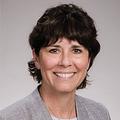
5/16/2023
UW CHDD Promoted to UW IHDD with Sandra Juul as New Director
The University of Washington (UW) Center on Human Development and Disability (CHDD) has been renamed the UW Institute on Human Development and Disability (IHDD), with Dr. Sandra Juul appointed as the new Director. The IHDD is a research, service, and training center that aims to improve the lives of individuals with disabilities and their families through various programs and services, including diagnostic, assessment, and treatment services.

5/15/2023
Autism and the Dysregulated Arousal System
By Rebecca Grzadzinski, Kattia Mata, and Jose Rodriguez-Romaguera, The Carolina Institute for Developmental Disabilities - UNC IDDRC
How do babies learn to be social? Babies are born into the world with so much to learn, from basic body movements to complex communication and interaction skills. Philosopher John Locke believed that babies are born into the world as "blank slates" (tabula rasas)-everything to learn will be gained from their environment and experience1. Indeed, environment and experience are critical for learning-studies on enriched environments highlight this. However, research continues to highlight the influence of inherent characteristics, underlying neurobiology and genetics on how and what we learn or know. Researchers aim to understand what and how we learn by studying the dynamic interplay between inherent biological traits, physiological states, and the environment.
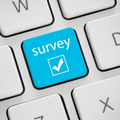
5/3/2023
EDI-Self-Report (EDI-SR) Survey
The purpose of this new research study is to create a questionnaire known as the EDI-Self-Report (EDI-SR). This project is funded by the Eunice Shriver National Institute of Child Health & Human Development (NICHD). The EDI-SR was designed to measure emotional experiences in autistic teens and adults and teens and adults with other intellectual and developmental disabilities (IDD). This study is enrolling individuals ages 11 and older who are autistic or have an intellectual or developmental disability (IDD) and their parents/caregivers, as well as individuals without these diagnoses. Individuals must be current United States residents to participate.

4/24/2023
Harnessing Uniqueness: MNLEND Fellow Leverages Neuroscience Advances to Explore Brain-Behavior Links
A MN LEND fellow searches neuroimaging databases for patterns that could lead to more personalized and effective strategies for regulating emotions, or developing social cognition, among other skills.

4/12/2023
Special Education Research & Bots Survey
Are you a researcher who studies services and/or supports for children/youth with disabilities? Have you conducted at least one online research survey anytime between January 2010 and today? Researchers from Coastal University and Vanderbilt University are recruiting participants for a research study to learn about your experiences conducting online surveys in special education and related fields, including any experiences you may or may not have had with online bots.

3/20/2023
Autistic, Not Sorry
Isabelle Morris (left) is a MN LEND fellow and autism researcher who describes herself as "unapologetically autistic." She's among a growing group of autistic researchers using their lived experience to shape the future of autism research.
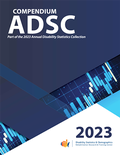
3/17/2023
Release of the Annual Disability Statistics Collection
On February 7, 2023, StatsRRTC at the Institute on Disability released key findings from the Annual Disability Statistics Collection. The annual report addresses critical gaps in national and state data related to people with disabilities by synthesizing complex data from numerous U.S. federal agencies into accessible formats.
_sm.png)
3/16/2023
Will SARS-CoV-2 During Pregnancy Impact Child's Neurodevelopment?
Scientists led by the Lieber Institute for Brain Development are studying how a mother's SARS-CoV-2 infection during pregnancy affects the biology of the placenta and the corresponding trajectory of the child's brain development, including the risk for neurodevelopmental disorders such as schizophrenia and autism.
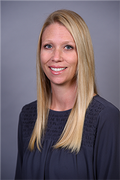
3/13/2023
Dr. McNally Keehn Selected to be Health Equity Research Scholar
Dr. Rebecca McNally Keehn, Research Director at the Indiana LEND, has been selected to participate in the Health Equity Research Scholars (HERS) Program, a 9-month faculty-development program for faculty at Indiana University School of Medicine.
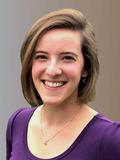
3/10/2023
CAR Postdoctoral Fellow Dr. Elizabeth Kaplan- Kahn Featured on Autism Science Foundation Podcast
The Center for Autism Research (CAR) Postdoctoral Fellow Dr. Elizabeth Kaplan- Kahn was featured on #ASFpodcast! The CAR team is working to improve a measure of Quality of Life for autistic individuals who are minimally verbal or have cognitive disabilities. These individuals may have different outcomes as other autistics, but their responses are just as important.

3/9/2023
Future TBI Treatments May Hinge on Understanding a New Cell Type
In a new paper published in GLIA, investigators from Children's National Hospital reviewed 25 years of neuroscience research to lay out what's known about the molecular response of these NG2-glia cells after TBI. Researchers said they see "a seductive possibility" that tapping into the regenerative potential of NG2-glia cells after neurotrauma could lead to therapies in the future.

3/6/2023
Autism Across the Life Span Annual Conference
Autism Across the Life Span brings together researchers, students, educators, people with autism and their families to Overland Park, Kan., on March 24. Presented by the Kansas Center for Autism Research & Training at the University of Kansas Life Span Institute, the conference will feature presentations from nationally recognized scientists, as well as discussions on inclusion in research, neurodiversity, transitions in life and more.

2/22/2023
Alzheimer's Progression in Down Syndrome Appears Similar to Other Genetic, Early Onset Forms of the Disease
NIH-funded study suggests people with Down syndrome may benefit from Alzheimer's disease treatments. The study was conducted by Beau Ances, M.D., Ph.D., of Washington University in St. Louis, and colleagues from the Dominantly Inherited Alzheimer Network (DIAN) and the Alzheimer's Biomarkers Consortium-Down Syndrome (ABC-DS).

2/21/2023
Virtual Reality May Help Smooth Out Disconnects Between Vision and Hearing
Sensory inputs that neurotypical people perceive as simultaneous are sometimes perceived as separate in autistic individuals, such as the sight and sound of a bouncing ball. Vanderbilt Kennedy Center (IDDRC, UCEDD, LEND) researchers are now closely examining the ways autistic brains perform when it comes to processing and merging visual, auditory, and tactile information. The step may lay the foundation for interventions to improve sensory integration.
2/15/2023
Clinician, Researcher Lead New Intellectual and Developmental Disabilities Research Center in Iowa
Ted Abel, PhD, and Lane Strathearn, MBBS, PhD, are leading one of only 15 federally funded intellectual and developmental disabilities research centers in the country. The new Hawk-IDDRC [Hawkeye Intellectual and Developmental Disabilities Research Center] integrates the efforts of researchers in the Iowa Neuroscience Institute (INI) and clinicians in the Center for Disabilities and Development (CDD), part of University of Iowa Stead Family Children's Hospital, to connect basic and clinical research across the lifespan.